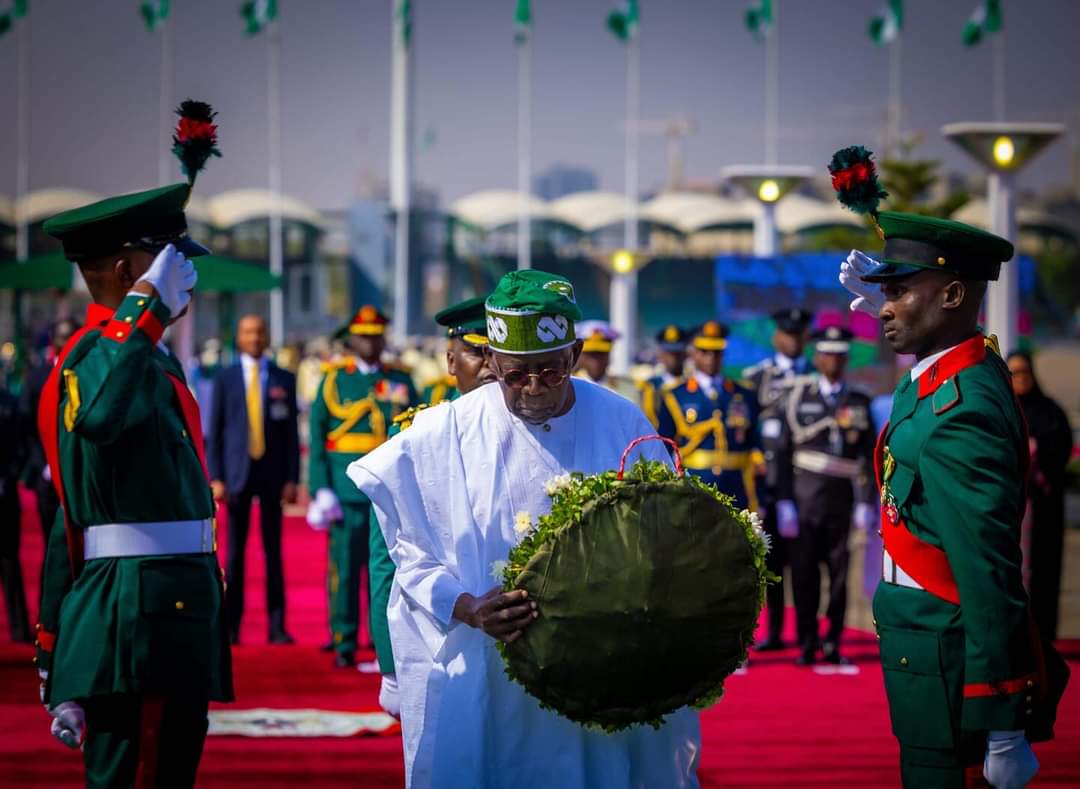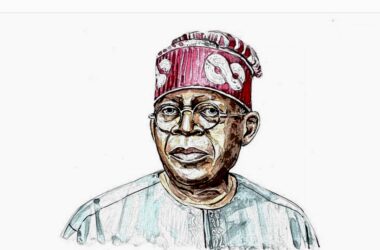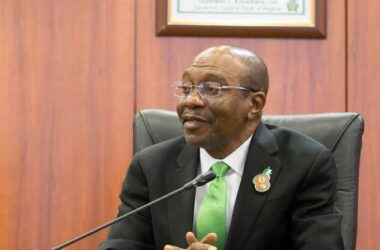“I will assess Tinubu’s government after one year,” was Prof. Wole Soyinka’s response during a recent conversation, when asked for his assessment of the stewadship of President Bola Ahmed Tinubu’s government. The Nobel laureate, who described this wait-and-see stance as a long-standing personal policy of his, said a one-year period gives new leaders time to make up for lost ground. “When they come in,” Soyinka said, “they don’t start from Ground Zero. They often start from even lower than Ground Zero … When you see me (again), ask the same question again and listen to my answer.”
Whatever the assessment of the Soyinkas of this world will turn out to be on that one-year milestone, the Tinubu administration is already anticipating the occasion with a measure of excitement; it has set up a 28-man committee to mark the occasion. Inaugurating the committee in Abuja last week, the Secretary to the Government of the Federation, Sen. George Akume, explained that the essence of the anniversary celebration (which is slated to begin on May 24 with a Press Briefing, and end with a State Dinner on the 29th) was borne out of the need to render an account to Nigerians on the achievements of the Tinubu administration and to reassure them of its commitment to deliver on the Renewed Hope Agenda. The government, Akume added, was on course to unleash the country’s full potential by focusing on job creation, access to capital for small and large businesses, financial inclusiveness, the rule of law, and the fight against hunger, poverty and corruption.
No doubt, it has been a rollercoaster year for both the government and for Nigerians. It has definitely not been short of drama and fundamental shifts – shifts that were signaled from Day One of the Tinubu administration. Moments after being sworn in as President, Tinubu made the momentous decision to pull the plug on the petroleum subsidy regime, in a bid to stem the haemorrhaging of government’s hard-earned funds to service a system riddled with corruption and lack of transparency. As at 2022, about 40% of Nigeria’s revenue was spent on fuel subsidies – which the majority of stakeholders agreed was an unsustainable scam. Admittedly, the measure – and the abrupt manner it was imposed on the populace – worsened the rate of inflation in the country, especially concerning the affordability of basic commodities.
But amid the resultant hardship, the Tinubu government has since strived to deploy the monies saved from the termination of the subsidy regime into investments in critical sectors of the economy – in addition to enhancing the revenue base of sub-national entities across the country in a bid to bring the benefits of the subsidy removal policy to the grassroots. Also, the action brought to the front burner the urgent imperative to revive our moribund domestic refineries to so as to drastically reduce (if not totally eliminate) Nigeria’s fuel import billl. The subsidy policy, it is envisaged, will increase employment especially among our teeming youths, as well as expand opportunities for the country’s burgeoning start-up and MSME ecosystem.
A few weeks after ending fuel subsidy payments, the President followed it up with the naira floatation policy, which sought to introduce a market-driven approach to the valuation of the country’s national currency in order to foster transparency, competitiveness, and wholistic economic growth. Though the measure impacted Nigeria’s foreign debt and financial stability negatively in the short term, it however allowed market forces to determine the naira’s true value in relation to other currencies – as well as enhanced the Central Bank of Nigeria’s (CBN’s) ability to attract inflows and improve liquidity.
While the subsidy removal and the currency liberalisation policies remain, till date, the most consequential of President Tinubu’s policy actions so far, others have been no less impactful – to varying degrees.
On assumption of office, Tinubu pledged a new ‘security doctrine‘ by which he would drastically reset the country’s security architecture in the government’s bid to defeat the violent and centripetal forces hell-bent on undermining the territorial integrity of the state and inflicting harm on its citizens. In appointing a number of experienced military and police officers to the commanding heights of the armed forces and law-enforcement agencies, President Tinubu displayed his recognition of the need for inclusion, and his willingness to adopt a hands-on approach as Commander-in-Chief. He also departed from the norm with the appointment of Mallam Nuhu Ribadu, a retired police chief and former Chairman of the Economic and Financial Crimes Commission (EFCC) as his National Security Adviser. Though the outcomes of these bold moves are yet to be fully felt (especially in the face of recent tragic setbacks), Nigerians are less cynical these days about the ability and readiness of the Tinubu government to confront squarely and vanquish the monsters of insurgency, terrorism and banditry. In place of the resignation of yesteryears, there is now a sense of cautious optimism in the air.
Agriculture is another area in which the Tinubu-led federal government is literally putting its money where its mouth is. “Our resolve,” the President said at the beginning of his tenure, when he unveiled his 8-Point Agenda, “is to develop the agricultural sector towards the attainment of the objectives of the Sustainable Development Goals (SDGs) especially to do with zero hunger, and to improve self-sufficiency and rural productivity.” To this effect, he not only declared a state of emergency in the sector in July 2023, his government also set aside 500,000 hectares of farmland for the production of maize, rice, wheat, and other crops. In a bid to promote year-round farming, the government also imported 6,750 metric tonnes of hybrid wheat seeds for dry-season farming. To strengthen agricultural extension delivery services across the country, the Federal Ministry of Agriculture and Food Security put together the first-ever Harmonised Extension Manual and The National Agricultural Extension Policy. President Tinubu also ordered that all matters pertaining to food security and water availability/affordability, be placed within the purview of the National Security Council. Since its recent engagement with a group of agricultural stakeholders, the government has adopted two immediate intervention strategies: a) the immediate release of fertilizers and grains to farmers and households to mitigate the effects of the subsidy removal; and b) the creation of an urgent synergy between the Ministries of Agriculture and Water Resources to ensure adequate irrigation of farmlands in order to guarantee that food is produced all-year round (in line with government’s understanding that Nigeria can NO LONGER AFFORD to rely solely on seasonal farming).
Going forward, the government plans to do the following: maintain a National Commodity Board to review and continuously assess food prices as well as maintain a strategic food reserve that will be used as a price stabilisation mechanism, especially for critical grains and other food items; engage the country’s security agencies to protect farmlands so that farmers can return to their farms without fear of attack; collaborate with mechanization companies to make more forests available for farming; deploy concessionary capital/funding to the sector especially towards fertilizer, processing, mechanization, seeds, chemicals, equipment, feed, labour, etc; explore means of transporting agricultural produce by means other than road, so as to reduce freight costs; revamp existing warehouses and tanks to cut waste and ensure the efficient preservation of food items; work with the Nigerian Customs Service to remove bottlenecks experienced in exporting and importing food items as well as intra-city transportation, and; double the percentage of Nigerians working in agriculture (from the present 35.21% (as at 2021) to 70% in the long term.
In the run-up to his one-year in office, it will also be recalled that the President signed the 2023 Electricity Act expected to de-monopolise electricity generation, transmission and distribution at the national level, as well as empowered state governments, companies and individuals to generate, distribute and transmit electricity.
On the foreign scene, the Nigerian leader has been assiduous, in the last one year, in courting key players in the international investment community and selling them on Nigeria’s immense ROI offerings – interventions which to a great extent, are yielding the desired fruits.
The ancient Greek philosopher, Aristotle said political governance was “primarily concerned with the development and actualisation of human flourishing”. President Tinubu’s efforts at ensuring the ‘flourishing’ of Nigerian life are yet to bear all the desired fruits as he marks one year in office, but most stakeholders agree that he is very much on course – and will reach the desired destination with the unflinching support and cooperation of his compatriots.
The biblical book of Galatians 6:9 contains an admonition Nigerians, on their part, will do well to heed – even in the throes of our present economic hardship and security challenges: “Let us not … become weary in doing good, for at the proper time we will reap a harvest if we do not give up.”
Happy first anniversary, Mr. President!






